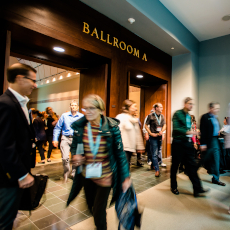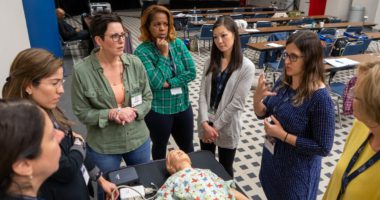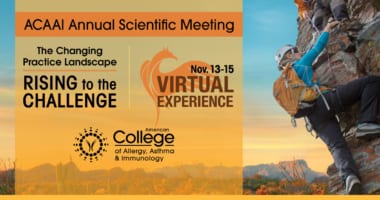Updated August 29, 2018
 Our Annual Scientific Meeting in Seattle is all-new this year, with great new features, enhanced social events and so much more. It’s perfect for any stage in your journey – whether you are in training or a veteran allergist. As summer begins, mark your calendar for Nov. 15-19 and plan for a few days out of the office – you aren’t going to want to miss our Thursday and Monday programs.
Our Annual Scientific Meeting in Seattle is all-new this year, with great new features, enhanced social events and so much more. It’s perfect for any stage in your journey – whether you are in training or a veteran allergist. As summer begins, mark your calendar for Nov. 15-19 and plan for a few days out of the office – you aren’t going to want to miss our Thursday and Monday programs.
On Thursday morning, you’ll get the scoop on how to use biologics in your practice. These medications are costly and often difficult to implement, and we’ve got the info you need to start using them in your practice right away. Prepare to dive into topics like:
- Biologic therapy and your practice
- Targets in use of biologics
- Phenotypes/endotypes for biologics
- Asthma and upper airway diseases
- Dermatologic diseases
- How to choose, use and bill
Thursday afternoon, you’ll get the latest information on how to stay relevant when it comes to drug allergy. It’s a topic that is often in the news, and patients may have questions for you about it. Be ready to answer by attending this program! Topics include:
- Antibiotic desensitization
- Antibiotic stewardship
- The allergist in the community hospital
- How academic centers are reacting
- Drug allergy coding and billing
Many meeting attendees are tempted to go home on Sunday night, but we saved some of our best sessions for last! Don’t leave early and miss out on plenaries like:
- Collaborations and Challenges in Clinical Practice – Learn how to be a resource in your community from speakers representing the Allergy and Asthma Network (AAN); American Lung Association (ALA); the Asthma and Allergy Foundation of American (AAFA), the Food Allergy & Anaphylaxis Connection Team (FAACT), and the National Education Association (NEA). Also, learn how to deal with mental health in your practice, from screening to physician wellness and staff burnout. And don’t miss the Bernard Berman Lecture presented by Anne Ellis, MD, MSc, FACAAI, on the signs and symptoms of anaphylaxis.
- How Allergists Can Help Prevent Food Allergy Development: Translating Evidence into Practice – Evolving evidence has shown the potential for some early life interventions to reduce the risk for development of atopic dermatitis and food allergies. However, misinformation surrounding other non-effective approaches persists. This session will provide allergists with information to assist in their recommendations to expecting and new parents.
- CAP (Continuous Assessment Program) Review – To assist meeting attendees in their maintenance of ABAI certification, this session will cover most of the articles chosen by the ABAI for the July to December cycle. This will be a literature-style review session with each speaker focusing on key aspects of the study design, results and implications for practice. Topics include rhinitis/sinusitis, asthma and related disorders, food and drug allergy, anaphylaxis, immune hypersensitivity disorders, immunodeficiency, eosinophilic disorders, and gastrointestinal disease.
- Evaluation of a Patient with Secondary Immune Deficiency (Case-based learning) – Secondary immune deficiencies are a common complication of therapy with immunosuppressive agents, immunomodulators and chronic steroid therapy. Participants will discuss the recognition and evaluation of patients with suspected secondary immune deficiencies
Registration is now open – visit the Annual Meeting website for all the details.


